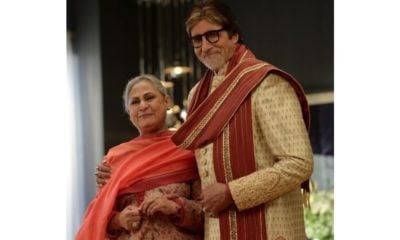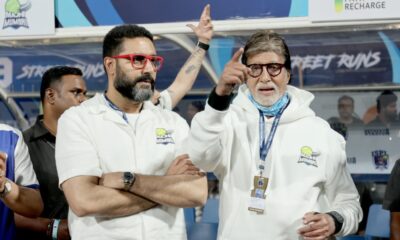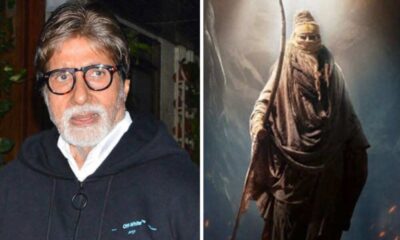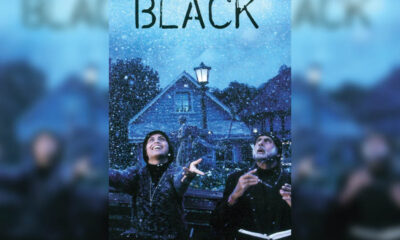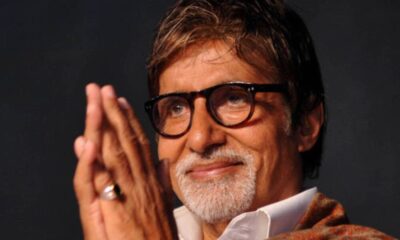Movie Reviews
Jhund review: Overlong and underwhelming.
Nagraj Manjule’s Amitabh Bachchan starrer drama drags on for three hours to make a point for marginalized communities in India
Published
2 years agoon
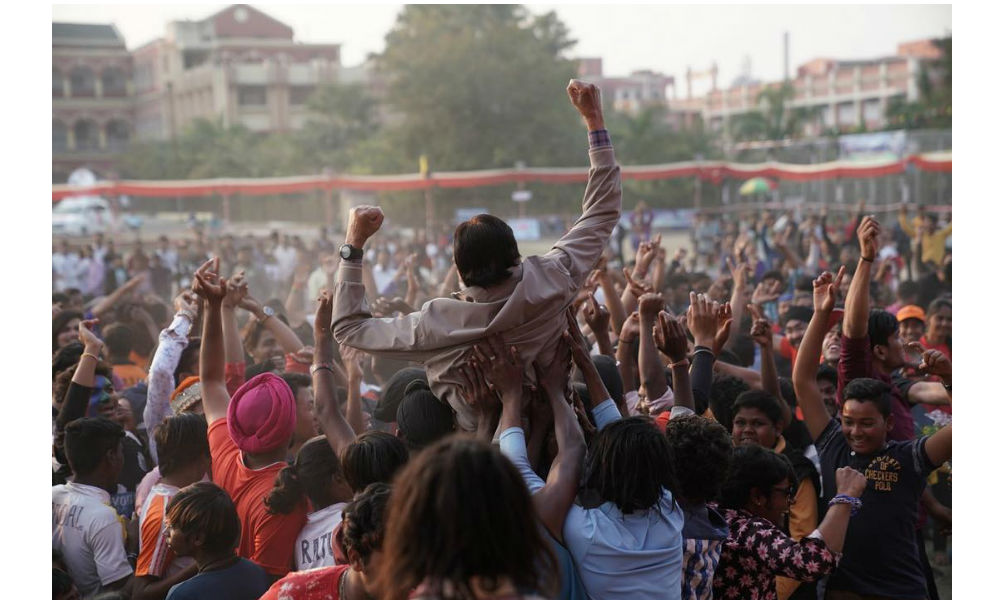
Jhund
Writer-Director: Nagraj Popatrao Manjule
Cast: Amitabh Bachchan, Ankush Gedam, Kishor Kadam, Chhaya Kadam, Rinku Rajguru, Akash Thosar
Cinematography: Sudhakar Reddy Yakkanti
Music: Ajay – Atul
Releasing in theatres on March 4, 2022.
The most remarkable and memorable thing about Nagraj Manjule’s Jhund is its cinematography by Sudhakar Reddy Yakkanti. And if you come out of the theatre remembering only the cinematography, not the story or characters, it’s a sign that the filmmaker has lost you as an audience. Jhund tries to make a case for the marginalized communities in India. In this case, the people living in slums are deprived of education, opportunity and respect. The youngsters from slums involved in petty crimes like stealing coal from trains, snatching jewelry, selling cheap liquor are not unknown.
In Jhund, a wall divides the slum and a college for the affluent society. Vijay Borade (Amitabh Bachchan) resides in the vicinity of these slums. He is a football coach at the college. He spots football talent in the slum kids and wants to help them. He starts off by luring them by paying 500 rupees to play football for half an hour. Initially, playing only for money, the kids soon want to play football for pleasure.
Vijay’s concern for the kids seems sudden. So does the kids’ eagerness to play football for free when most of them have to make a living to survive. The kids are addicted to alcohol, cigarettes and cannabis. They have talent and skills to become athletes or artists. But they don’t have anyone to guide them or give them a chance to showcase their talents. Vijay pleads with the college authorities to give these kids a chance to compete with his college football team. The kids get their moment under the sun but their lives are riddled with problems addictions, discrimination and fight for survival. There are many subplots with which Manjule wants to tap on all matters affecting the marginalized communities. There is gender bias, caste and class divide, proof of identity and more.
Also read: Pondicherry Marathi Movie Review: Heart-warming and Enchanting!
Discrimination based on caste has plagues Indian society for ages. But if you look at Indian politics, the caste is used only for vote banks. Seldom there’s a politician working for the welfare and upheaval of the caste and community he/she banks on to gain political power. Manjule’s both Marathi feature films Fandry (2014) and Sairat (2016) were based on love jeopardized because of caste and class divide. While Fandry is one of the most poignant and honest films ever, Sairat was a smart blend of indie and mainstream. Much of its success came through Ajay-Atul’s soulful, cult music.
Jhund starts off with a remarkable sequence – courtesy cinematography and editing work – to establish the world and people we are going to see. At once it raised my hopes of witnessing our very own version of Fernando Meirelles’ City of God (2002). The world created is rustic, edgy and authentic. Manjule is also the casting director, so faces we see are difficult to distinguish between real people from the slums or actors playing roles. That’s the best aspect about his films. Manjule’s finds from his first two films Akash Thosar & Rinku Rajguru from Sairat, and Somnath Awghade from Fandry make earnest appearances.
Watch Jhund trailer here:
Amitabh Bachchan as Vijay Borade, a character inspired by a real life football coach Vijay Barse who founded an NGO to empower Slum Soccer. This is one of Bachchan’s finest ever performances. This Vijay is vastly different than the Vijays the actor has played on screen in his angry young man days. He manages to leave his Bachchanness at bay even in a court monologue.
Manjule keeps the dialogue natural and quirky and there’s plenty of attention to detail in the screenplay. But Jhund moves at a meandering pace. A film’s length shouldn’t be a problem if it is engaging. But Jhund takes forever to make a point in the climax through a Bachchan monologue on uplifting marginalized communities. If you had to eventually convey your message through exposition, what was the point spending all this time setting up the whole thing?
You may like


When Jaya Bachchan said, “Amit did not force me to quit films”


Amitabh Bachchan backed Majhi Mumbai’s thunderous performance seals their spot in the ISPL T10 Finals!


Amitabh Bachchan unveils key updates on Kalki 2898 AD


Sanjay Leela Bhansali’s Black arrives on Netflix, marking its 19th anniversary


Amitabh Bachchan’s property worth Rs. 3160 Crores to be divided between his children Abhishek and Shweta


Team Ganapath to launch action promo with fans and media at the first pre-release event at Gaiety Galaxy Cinema!

